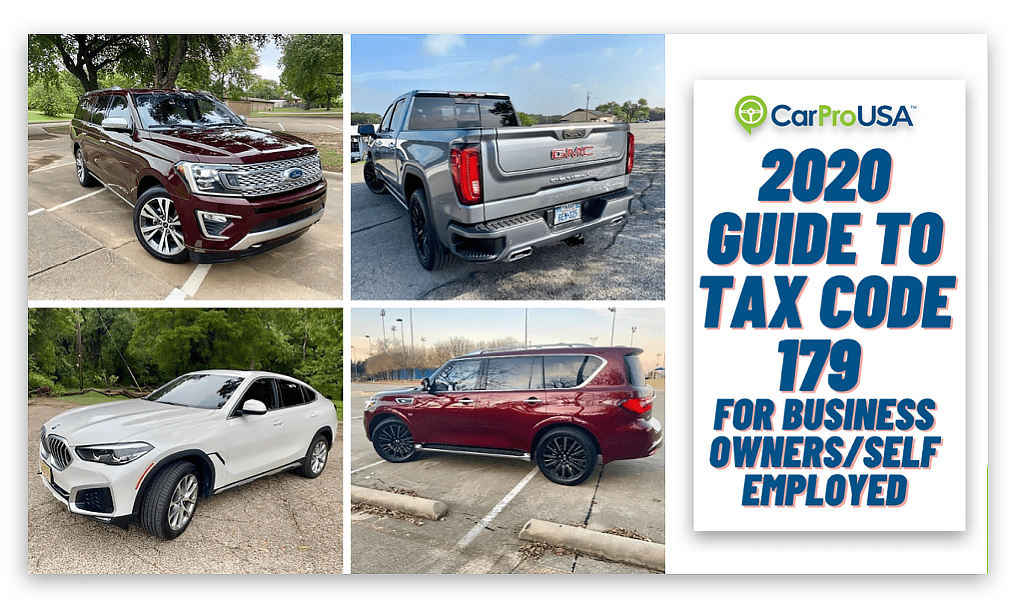
• obvious “work” vehicles that have no potential for personal use typically qualify. For miles driven in 2021, the standard mileage deduction is $0.56 per mile.

The irs allows you to deduct the following actual car expenses:
Tax deductions for business vehicles. If an employee uses a personal vehicle for business, the employer typically reimburses the employee for the business mileage incurred at the standard mileage rate. Exceptions include the following vehicles: There are two methods for this:
Schedule c (form 1040), profit or loss from business (sole proprietorship) or. Ambulance or hearses used specifically in. The irs allows you to deduct the following actual car expenses:
You have the standard mileage rate deduction which calculates how many business miles you have driven and gives you a deduction based on that. In 2022, it is $0.585 per mile. While this is acceptable, it’s not nearly as good as the actual expense method in reducing your tax liability.
Everything from whether to buy a car, truck, or suv, to smaller factors, such as specific options and color. For miles driven in 2021, the standard mileage deduction is $0.56 per mile. The deduction is limited to the amount of use and can�t be taken on personal use.
So, for example, if your business use percentage per your expertly kept records is 80%, you get to deduct 80% of all those expenses. Standard mileage rate more simply, you can. You can only take a section 179 deduction for vehicles used more than 50% of the time for business purposes.
3 section 179 deductions and depreciation. Bonus depreciation allows for an “additional” deduction of up to 100% of the cost of the vehicle in the first year if not fully deducted under section 179. Before the tax cuts and jobs.
And then you have the actual expenses deduction which allows you to write off the direct costs of the vehicle including depreciation. To qualify as a “heavy” vehicle, an suv, pickup or van must have a manufacturer’s gross vehicle weight rating (gvwr) above 6,000 pounds. We would defer business owners to this method only if they can’t meet the 50% business mileage minimum using the actual expense method.
As the name implies, you deduct the business use percentage of your vehicle�s actual expenses incurred, including gas, maintenance and repairs, insurance, taxes and fees, etc. While tax considerations may not top the list for personal There are two methods for deducting vehicle expenses, and you can choose whichever one gives you a greater tax benefit.
For example, a pool cleaning business can deduct the purchase price of a new pickup truck that is used to get to and from customers� homes. This is key because the more your vehicle weighs, the more you. The section 179 deduction allows qualified taxpayers to deduct part or all of the cost of certain vehicles in the first year of business use.
You can deduct $0.585 per business mile driven in 2022. Schedule f (form 1040), profit or loss from farming if you�re a farmer. Tax deductions for business vehicles what to consider when purchasing a business vehicle there are countless factors that influence a person’s decision to purchase a particular vehicle.
For passenger vehicles, trucks, and vans (not meeting the guidelines below), that are used more than 50% in a qualified business use, the total deduction is limited to up to $18,200 per vehicle. Divide your business miles (100) by your total miles (300). This example shows that the business mileage expense for this month would equal $58.50 in (100 * 0.585).
• obvious “work” vehicles that have no potential for personal use typically qualify. 1 depreciation licenses gas oil tolls lease payments insurance garage. Taxpayers looking to write off business use of car expenses will need meticulously kept records to provide to the irs.
Multiply the number of business miles with the mileage rate of 58.5 cents. Make sure the car’s title. You or your business leases or owns the car you can’t deduct a car you don’t own or lease.
Gross vehicle weight can qualify for at least a partial section 179 deduction, plus bonus depreciation. Renting to your business instead Oil and gas tires licenses tolls and parking fees lease or rental payments registration fees and taxes vehicle loan interest insurance garage rent.
Thus, you have used your personal vehicle for 33% of your total use. Registration fees and taxes gas and oil costs maintenance and repairs licenses vehicle insurance rental. The amount received for documented business miles is not taxable to the employee and vehicle expenses are deductible by the employer.
Employees who use their car for work can no longer take an employee business expense deduction as. For a passenger auto that costs more than the applicable amount for the year the vehicle is placed in service, you’re limited to specified annual depreciation ceilings. Multiply the miles driven for business during the year by a standard mileage rate.
How to qualify for business car tax deductions 1.